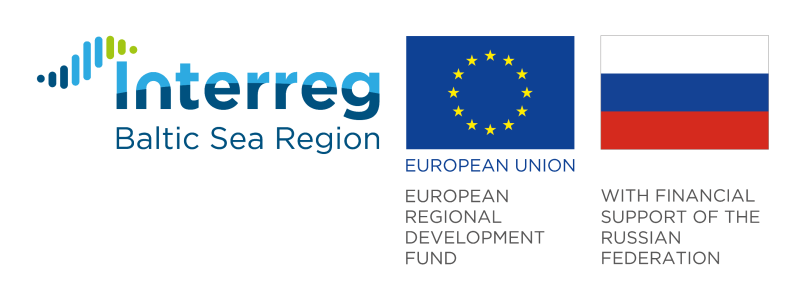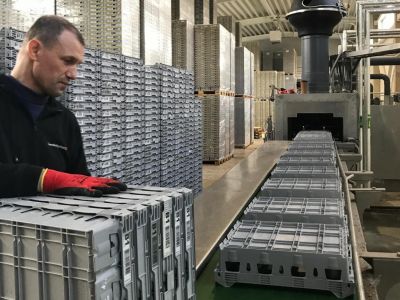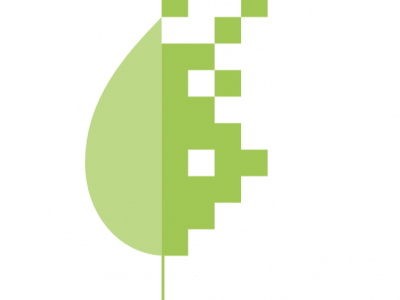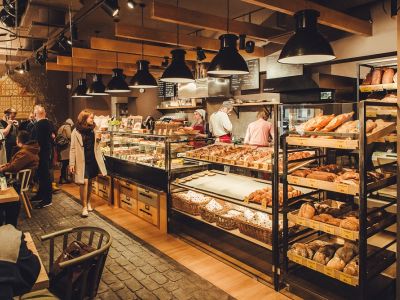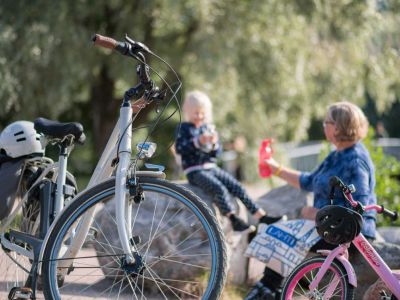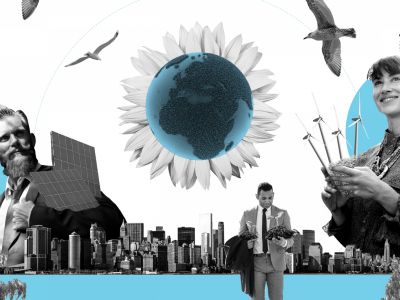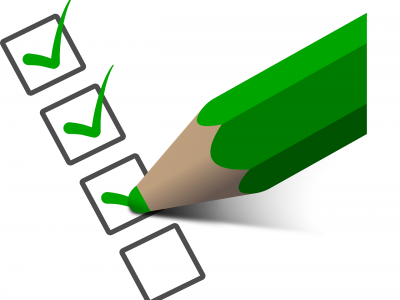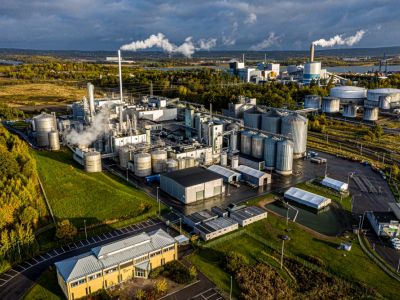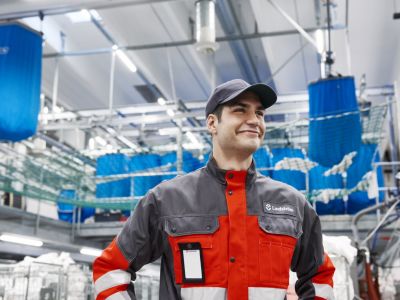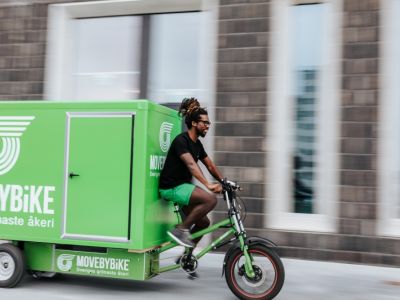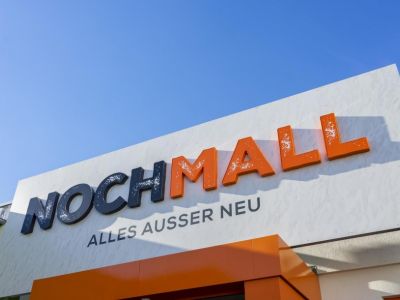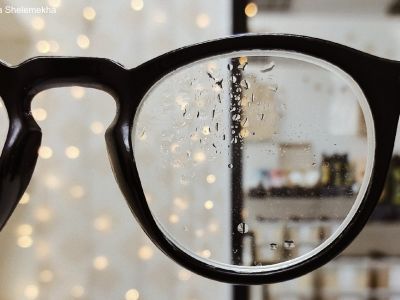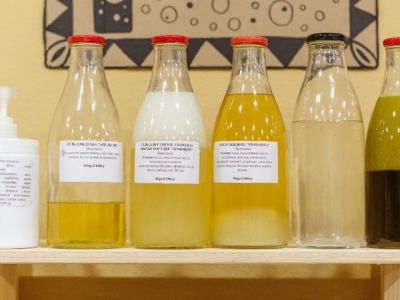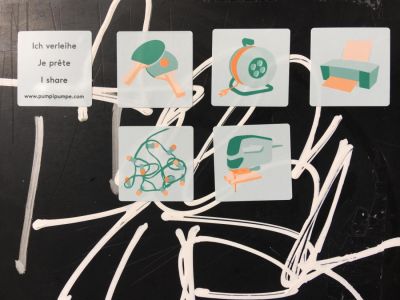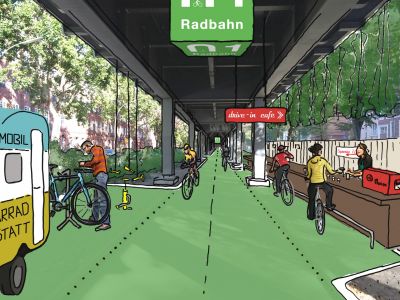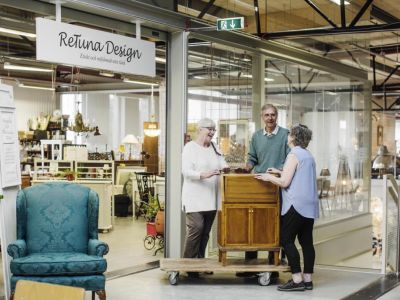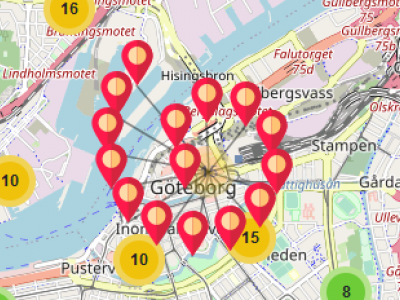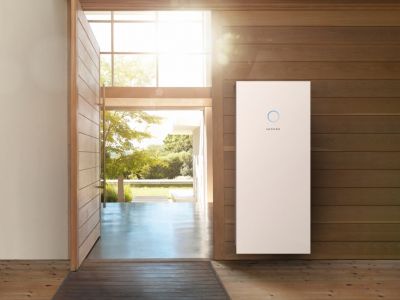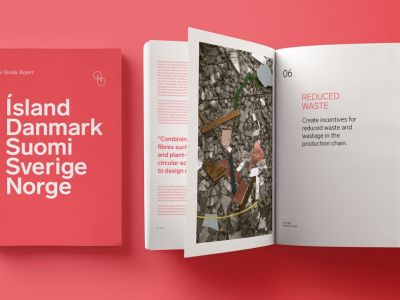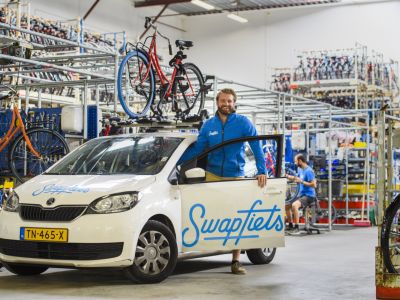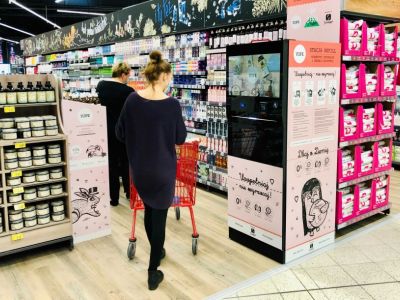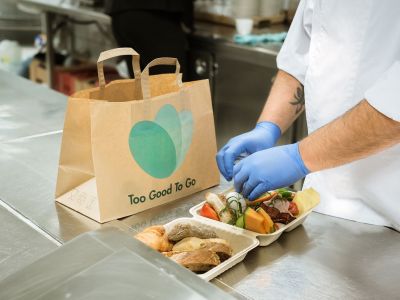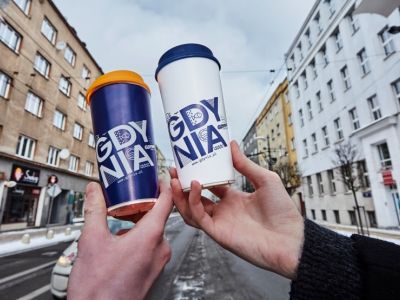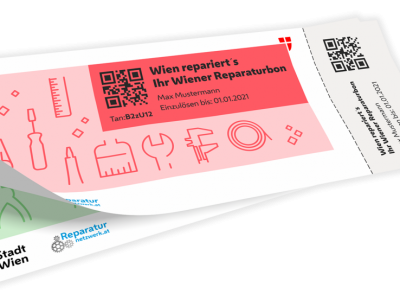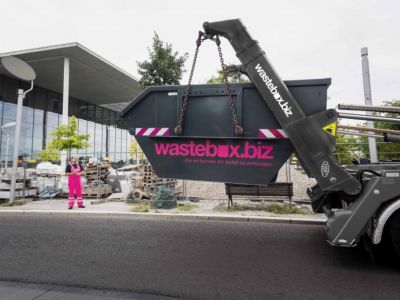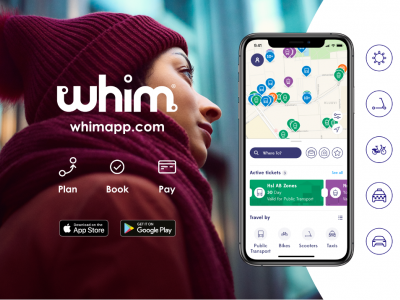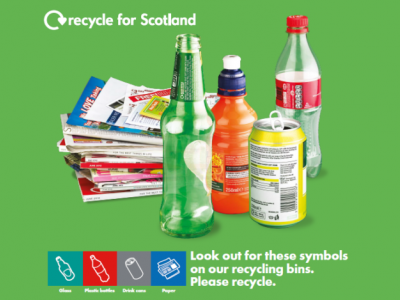![]() Policy & Cooperation
Policy & Cooperation ![]() Poland
Poland ![]() Triggering & Incentivising
Triggering & Incentivising
picture on top: Rafał Motyl, Urząd m.st.Warszawy
In 2019 the City of Warsaw, together with Our Earth Foundation, EcoTech System and Coca-Cola, launched in Warsaw the first network of Recyklomats in Poland. These are devices for selective waste collection, which is an attractive way to remind residents that it is worth segregating waste. The machines supplement the infrastructure for collection of raw materials “at the source” under the name Incentive System of Waste Management.
It consists of two elements: a network of Recyklomats (smart garbage cans) and a central transaction system. To use the solution, all you need to do is download the mobile application “ECO Wallet” to your smartphone and use the Recyklomat, which automatically sorts packaging waste, and the system registers all transactions and rewards the user for sorting by assigning the appropriate number of ECO points to his/her account, which can be exchanged for benefits such as prizes, discounts or rebates at project partners (among others cinemas and theatres).
What is the mission of the project?
The project’s mission is education, which today in Poland is the most important and most difficult element of the entire waste management system. And also to motivate the inhabitants to change their behaviour and habits.
Where and when did the project start?
The project started in Warsaw in 2019, with the official launch taking place in July 2019.
Where is the project offered today?
The first Recyklomats were placed in Warsaw, today they are also located in Kraków, and in the near future the network will be extended to smaller towns all over Poland. The collected ECO points can be exchanged for prizes and discount coupons at partners all over Poland.
To whom is this project aimed? Who belongs to your target group?
The concept of action takes into account four main groups of recipients/customers: inhabitants, local governments, recycling industry, and business partners.
1 – Inhabitants – exchange of waste for financial profits and discount programmes.
2 – Local governments, housing cooperatives – achieving EU levels of recovery and recycling, which will translate into financial benefits in the form of avoidance of penalties and lower costs of waste collection.
3 – Recycling industry – obtaining clean, correctly sorted secondary raw materials, which will affect the quality of service and reduce operating costs of entities.
4 – Business partners – gaining marketing tools for reaching new customers, strengthening sales in the area of vending machine locations, building a positive brand image based on the created loyalty system, gaining access to data on consumption structure for each location of the machine.
However, the solution can be used by everyone – people already interested in ecology and those who are just beginning their adventure with waste segregation alike. The target group includes all residents of Warsaw – both the elderly and the youngest, who can influence their parents with their segregation efforts.
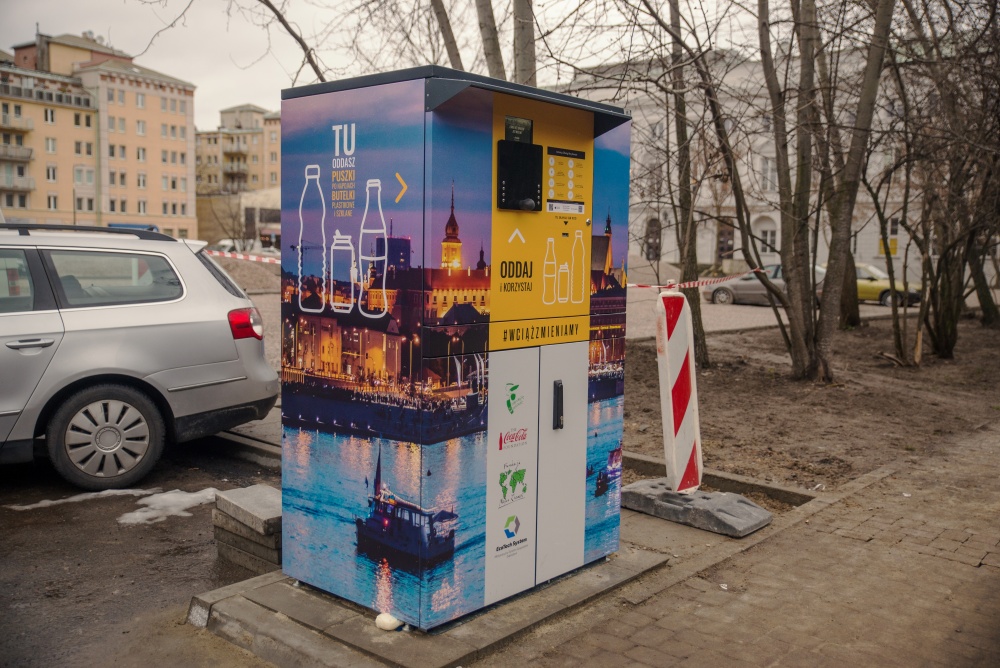 picture: Rafał Motyl, Urząd m.st.Warszawy
picture: Rafał Motyl, Urząd m.st.Warszawy
What do you consider to be the most innovative aspects of your concept?
Our project is an innovation in process and technical aspects using two elements: a central IT system and automatic segregation devices, so called Recyklomats.
The central IT system enables:
– Registration and management of ECO points and accounts of all process participants.
– Communication of the participants with business partners implementing the loyalty programme.
– Settlement of all transactions.
– Collection of data and reporting on the level of recovery and recycling.
– Monitoring and management of Recyklomats, partners advertising campaign, and (spots) displayed on the devices.
Recyklomat is a fully automated device used to accept predefined packaging waste (for example aluminum, PET, metal, glass). The machine has an innovative system of waste recognition/individual fractions thanks to which it can accept various types of packaging both with and without a label. The machines constantly send information to the system about the status of work and the level of filling of individual containers.
Our recyclers (intelligent garbage cans), in contrast to traditional machines, recognise the type of waste and do not only read the code on the packaging label. This ensures that every bottle and can goes to the right fraction, resulting in clean, sorted raw material, and a central IT system registers and accounts for all transactions.
At the moment we are the first in the world to use such a solution. Devices available in the world for this type of equipment only read codes on labels and print receipts, thus they are dedicated only to simple bail systems, which does not exist in Poland yet. Nevertheless, we are already offering our residents a very modern, effective and pro-social method of waste segregation “at the source” with the use of motivational factors, such as through a system of awards for active participants of the project. The idea is education and segregation.
What are the most important impacts of the project in terms of sustainability?
The most important effect is to build awareness of Warsaw residents in the field of waste segregation, to engage them in action and to change their behaviour into pro-ecological. Through rewards, residents have additional motivation to segregate waste. Even if the first motivation to recycle is the desire to win a particular prize, with time the habit is born and the residents do it not only to recycle waste to recycling machines and collect points, but they do it at home, simply for the environment.
Which aspects are particularly interesting from a design perspective?
1 – Central transaction system
2 – Innovative system of waste recognition in Recyklomats
3 – Loyalty system
Our tool has virtually unlimited possibilities, giving benefits from the synergy of partners caring for the environment and supporting eco-education.
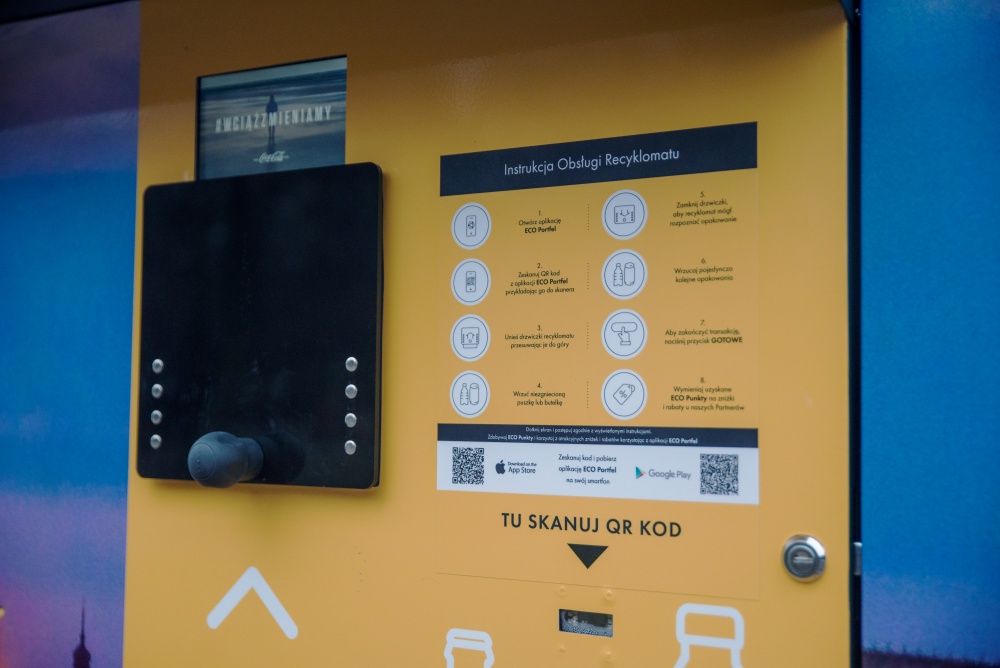
picture: Rafał Motyl, Urząd m.st.Warszawy
Will there be any digital offers developed?
Our service is offered mainly in digital form. The subject of the technology is the EcoTech System Platform – understood as a central IT system integrated with the network of automatic segregation devices and managing the whole process.
The technical parameters of the solution are divided into two parts:
1 – EcoTech System Platform – as the software part, using:
– Cloud computing
– Mobile applications – ECO Wallet
– Social network
– Smart City
– BigData
– Monitoring
– Geolocation
– Data transmission
– Internet of Things – IoT
– Digital Signage
2 – Recyklomat – device for automatic waste segregation – as a part of hardware, using:
– Mechatronics
– Automation
– Communication
– Sensors
– High-quality image recognition
– User identification and biometrics
– Telemetry
With these types of tools, we can bill, monitor and manage online the whole process and communicate with users.
What are some interesting numbers about the project?
Statistics for the period 1 July, 2019 to 31 August, 2020:
– More than 20,000 registered users
– More than 40,000 registered transactions in the system
– More than 466,000 pieces of collected waste
– More than 42 tons collected of clean, sorted raw material (PET, ALU, GLASS) – PET 10.24 tons, ALU 1.63 tons, GLASS 30.34 tons
Michał Olszewski, Deputy Mayor of the City of Warsaw is quoted in a press release of the City of Warsaw in early 2021:
Residents helped us collect over 427,000 plastic bottles, 132,500 glass bottles and nearly 122,000 cans. This is a major success on the road to a cleaner, friendlier city.
What happens next? What are your goals?
Having finalised most of the data collection part, the consortium will now starThe aim of the project is to invite to cooperation as many partners as possible in order to give inhabitants the widest possible choice among the prizes. As the City of Warsaw, we are planning to combine the Incentive Waste Management System project with the municipal e-services platform, thanks to which the residents will be able to use the Partners’ offers but also the typical municipal services. We are also expanding the project to other towns in Poland.

